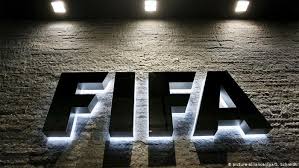May 26 – FIFA’s new agency regulation is under attack with the latest assault coming in Germany where the District Court of Dortmund has provisionally prohibited FIFA and the German Football Association (DFB) from “enforcing, implementing or applying” the new rules.
Under the regulation that was passed in December 2022 and came into force in January, agents must now be licensed, they also face a cap on the upper limit of commissions.
The cap limits agents to 3% of a player’s total contracted salary when an agent is representing a player or buyer (6% of that salary if representing both) and a maximum of 10% of the transfer fee.
The Dortmund court ruled on the complaint from players’ agents Ralf Bockstedte and Michael Frank, that the FIFA rules contained anti-competitive restrictions in contravention of the scope of Article 101 of the Treaty on the Functioning of the European Union.
The case has been referred to the European Court of Justice for further deliberation. In March, the Mainz Regional Court referred a lawsuit against FIFA to the European Court of Justice that similarly argued FIFA’s regulations restricted trade.
It is an argument that is increasingly being used in courtrooms worldwide and is threatening a complete derailment of FIFA’s new regulation.
FIFA president Gianni Infantino first warned that the governing body would address the issues of player agency in 2018.
“The commissions paid to intermediaries continue to rise while at the same time the money redistributed through the game and spent on training young players is falling,” said Infantino.
“These increasingly larger transactions are often not done in a clean, open manner and raise a lot of questions about potential misuse of funds. We have to tackle this issue.”
Few argued that there weren’t issues to contend with.
Player agents and intermediaries earned a combined $622.8 million in 2022, according to FIFA’s latest figures from its Transfer Match System (TMS) database.
The figure marks a bounceback for agents fees after a decrease in 2020 followed by a small increase in 2021, with FIFA pointing out that the total spending on club intermediary service fees has now almost returned to the pre-pandemic levels of 2019.
“This represents an increase of 24.3% compared to the previous year and is only 4.9% less than the record level of spending on intermediary service fees in 2019. This increase was particularly driven by the service fees paid to intermediaries representing the engaging club, which have in fact now reached a new all-time high, surpassing the previous record set in 2019,” said FIFA.
The danger for the new rules was always that they could fall foul of competition rules, particularly in the EU, but confined to Europe. Now those rules are being tested in courts FIFA can’t control.
Contact the writer of this story at moc.l1751419382labto1751419382ofdlr1751419382owedi1751419382sni@n1751419382osloh1751419382cin.l1751419382uap1751419382

